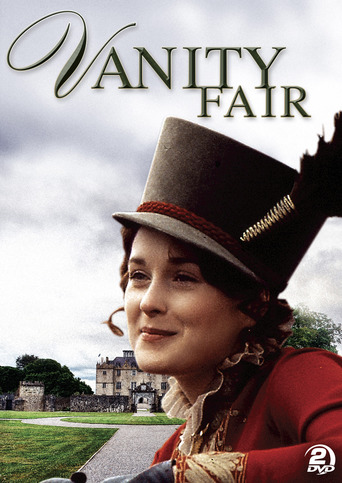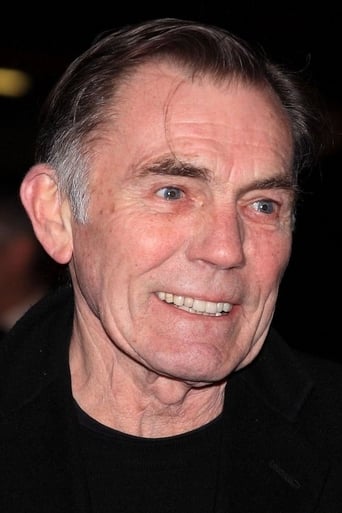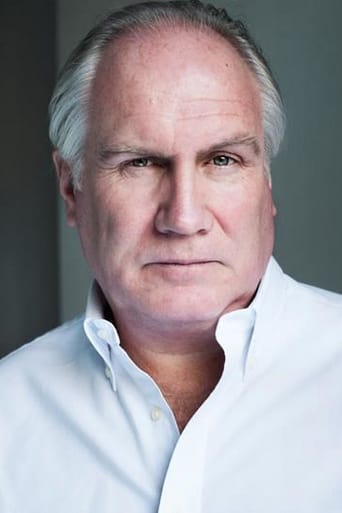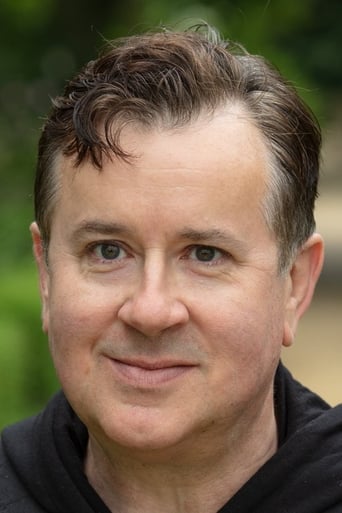

Vanity Fair (1998)
This faithful BBC adaptation once again brings William Makepeace Thackeray's classic satirical novel to the screen. Becky Sharp (Natasha Little) is a beautiful, clever and poor girl determined to earn a higher place in society at any cost. The Napoleonic Wars provide a dramatic backdrop as Becky sets out to manipulate various characters -- from London ballrooms to the battlefields of Waterloo.
Watch Trailer
Cast


Reviews
Loved this production! I had never read the book (I will now!) but have grown to have a lot of trust in any adaptation that BBC does. I was not disappointed. Especially impressive was the ability of Natasha Little (Becky Sharp) to express Becky's manipulativeness through her subtle facial expressions and subtle use of her eyes and her voice. She was able to convey the mix of wicked cunning and refined pleasantness in a way that was really convincing. Not hard to believe that so many of the characters were completely sucked in by Becky's wiles. This subtle and superb acting ability is often lost in modern films that rely so heavily on on visual/graphic effects to make the point. Bravo,BBC!
This is brisk, fun production that doesn't take itself any more seriously than it should, and doesn't mind winking at us with a secret smile at the same time. The story of Becky Sharp, a girl who is never any better than she needs to be, and her friend Amelia who is much too good for her own good.Natasha Little is simply perfect as Becky. Little is the kind of woman that women find hard to like: delicately beautiful, exceptionally talented making her perfect to play Becky. It is the subtle nuances in her moments that give her performance great depth and complexity needed for accessibility for a selfish character who is the smartest person in any room she is in. Becky is a woman who would agree with the quote of another brilliant beauty, Hedy Lamar: "Any woman can be glamorous. All she has to do is stand still and look stupid." Little's Beky is not as likable or vulnerable as Reese Witherspoon who played Becky in a major motion picture film version made right around the same time but with a miniseries we have time to understand her more. Besides, not many actresses are as likable as Witherspoon.As the story begins, this production does not look lavish, but the casting is so wonderful, the script so strong, the costumes simple but just right, that we are given the ability to focus on getting to know the people we will be following through 6 episodes.It is this initial simplicity that is the brilliance of the production design by Malcolm Thornton. In the early stages, poverty is cramped and messy; work is dark, cluttered and rotting, and wealth is clean, and bright and airy like freedom. As we progress through the story, wealth becomes more complex, overstuffed and overdecorated, echoing the complexity of the lives of Becky and Rawdon. Rawdon played by the handsome and overwhelmingly talented Nathaniel Parker (INSPECTOR LINLEY, BLEAK HOUSE).Breathtaking Andrew Davies, possibly the most brilliant adapter of the classics of all time, gifts us with a screenplay of grace and subtlety, weaving the ease of modern speech perfectly into the period action in a way that feels classic, but is totally accessible.It all bounces along to the ohm-pa-pa of a brass band. This band is one of the anachronistic touches of the production. While it passes as a military band, it also has a the raw, slightly under-rehearsed sound of a New Orleans jazz band, and sometimes a 1940s dance hall meanwhile Becky's musical choices are straight from the pub to the delight of the men around her. The band is really the only downfall of the production, in the moments of great serious importance, the band hits us over the head with a blaringly repetitive theme that gets very annoying after 6 episodes. It is the only "wrong note" in an otherwise witty and wise score. One of the nice subtle touches is that even Becky's singing, which at first seems flawless and delightful, begins to sound a bit flat in the episodes where we see dark results of her behavior on those around her.The music for Amelia and William is completely different. Plaintive melodies played as quietly as loyalty and love that things only of the good of the beloved. Philip Glenister as William carries the heart of the piece with affecting restraint. Miriam Margoles does her best work EVER here, and Jeremy Swift as Jos is absolutely delightful in every moment he is on screen! This entire miniseries is just marvelous, aspects of the production in tune with each other, in service to the whole piece. FANTASTIC.
Generally I think that the great Victorian door-stoppers are better suited to the mini series format than that of feature films because even with a running time pushed to three hours there just isn't the room for the typical panorama of characters, supporting characters, plots and subplots. Even this production unavoidably leaves much out, but it captures the essence of Thackeray--cold eyed cynicism very occasionally softened by generosity. Nearly every element worked, right down to the snorting pig that appeared at the beginning of each new installment. I admit at first I was a bit disappointed by the choice of Natasha Little to play Rebecca because I thought the actress was too tall and elegant to play a character who was described as petite and vivacious. But no matter; Little's cool headedness, verbal wit, and carefully disguised ruthlessness were all pure Becky (unlike Mira Nair, the screenwriters of this production realized that to soften this character's harder edges wouldn't modernize her; rather, it would flatten her). Frances Grey does fine in in the thankless role of Amelia Sedley. Although this was somewhat out of keeping with the novel, I did like the scene of Amelia still in bed after her wedding night, her hair spread out on the pillow, blissfully talking to her new husband. It makes her seem a bit more than stupidly devoted child-woman she is for most of the novel and makes those later scenes in which Becky and George (just weeks after George's marriage) brazenly flirt in front of Amelia all the more painful. The other characters are well cast too, with the terrifying Lord Steyne being the most memorable of all--in his final scene, without having to say a word he looks as if he really will have Becky murdered without a second thought if she ever approaches him again.All in all, highly recommended.
Rarely has a classic work of literature been adapted for television so well. This is a marvellous retelling of William Thackeray's 19th century novel, successful in almost every possible way. Purists may quibble that any attempt to adapt this sprawling bane of literature students' lives will always be doomed to failure simply because of the sheer size of it. But what makes this so good, particularly for those familiar with the novel, are two things: its total commitment to the spirit of 'Vanity Fair', and joyously perfect casting and acting.As readers of VF will know, the narrator plays a very important part in the book. His sly comments on the 'puppets' (as he often refers to the characters) that perform in his 'play' are frequently funny, exciting and always engaging. If VF is indeed 'a novel without a hero', it is no less engrossing for it. For the story is literally a Fair: characters come and go as the narrator sees fit while we the audience look on with amusement. We start with both Becky Sharp (the main character but not the traditional heroine as Thackeray's contemporary audience would have expected) and Amelia Sedley, and we follow their fortunes and interaction with other characters over some twenty or thirty years. Characters come, characters go; some die, some are born. But nearly always the narrator is there to invite us to feel something towards them: sympathy, repulsion, anger, love. And though he is notable by his absence in the book's most powerful scenes, he will return shortly to talk about something else that another character is getting up to. This is where this adaptation nails the spirit of VF so precisely; it never forgets that these characters are puppets in a play, performing for our entertainment. Traditional bandstand music plays over scenes to reinforce this impression. The comedy elements make us laugh (Jos Sedley and his enormous, well-fed behind trying to mount a horse or carriage), the battle scenes are visceral, the dramatic scenes are engrossing. And the sly comments of the narrator are subtly retained in bizarre camera shots: the fat pig snuffling outside Queen's Crawley, or the beggar playing 'Rule Britannia' with his little bells as the soldiers march off to fight the Battle of Waterloo.But this would have been for nought if the casting had not been spot on. Natasha Little IS Becky Sharp. Beautiful, alluring, charming, witty, cunning, deceptive and manipulative, she is every man's dream on the outside (I fell in love with her, and I can see all she is getting up to!). One look from her eyes is all that is required to get her climbing the social ladder, which ultimately is all that she wants. Frances Grey is also perfect as Amelia; not as beautiful as Becky, but still pleasant, sweet and kind-hearted, and forever doting on George Osborne. Tom Ward as Osborne was not what I was expecting, yet he got it right: a dashing English officer, strikingly handsome, and not totally devoid of morals, but very easily succumbs to his vanity and pride. Philip Glenister as the only genuinely heroic character in the book (though still not without faults), Dobbin, again is not how I pictured the character, but again nails it perfectly: slightly clumsy, socially awkward, but clear thinking, level-headed and always ready to do the right thing. The rest of the cast play their respective grotesques with equal perfection and relish - to single out each and every one is impossible, though all deserve it.As a lover of this book, I congratulate all on a job well done. I cannot comment on how someone who has not read VF will like this series, but I can understand that they may be a little bewildered by it all: the occasional dizzy camerawork and loud brass band music. So long as you understand that we are the audience of a colourful, vibrant fair populated by a rich assortment of people, all with faults, all with redeeming features (however materialistic they might be), then I think you should derive great pleasure from it, because more than anything, this is great fun.




